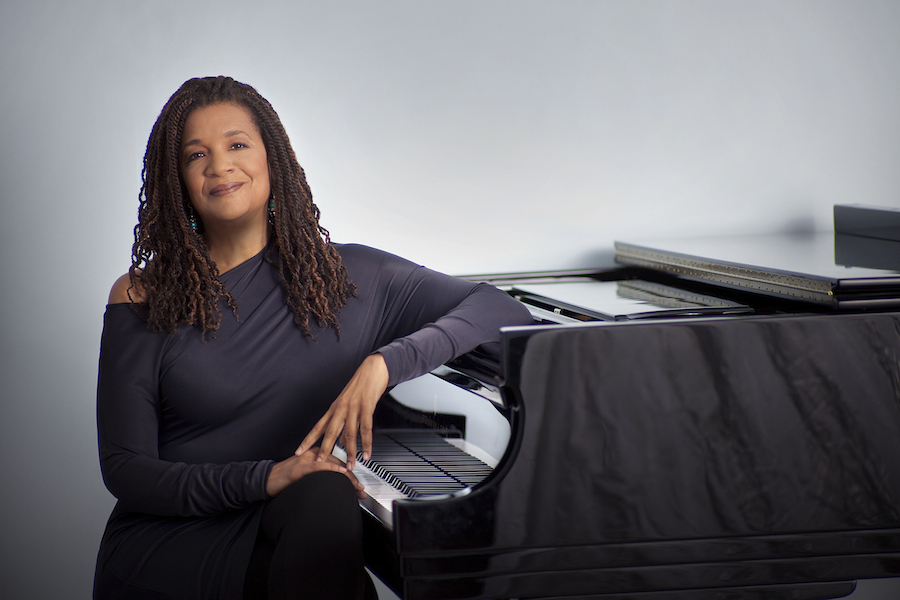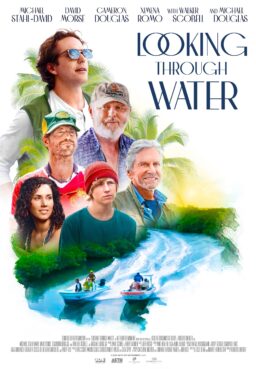The following conversation took place between RogerEbert.com publisher Chaz Ebert and acclaimed composer Kathryn Bostic, who has written the scores for such films as Ava DuVernay’s “Middle of Nowhere,” Justin Simien’s “Dear White People” and Timothy Greenfield-Sanders’ upcoming documentary, “Toni Morrison: The Pieces I Am.”
Kathryn Bostic you are a composer, pianist, vocalist and music producer for film, TV and live theater, and you are the first African-American female score composer to join the Academy of Motion Picture Arts and Sciences. That is an astounding resume, how did you get your start?
I grew up in a very musical household. My mother was a fantastic pianist, composer and singer and taught piano lessons in our home so I was always hearing a wide range of music from a very young age. She studied piano at Eastman School of Music and her passion for playing was immense. She’d practice for hours and I was a sponge soaking it up and began playing piano when I was three. She started teaching me and it was great but also challenging because I always wanted to make up my own songs, so looking back on that, I started creating my own music at that time. My brother loved music as well and had a vast record collection of jazz, Brazilian, R&B, pop artists. So one minute I’d be listening to Herbie Hancock, Aretha Franklin and Milton Nascimento, then later in the day I’d hear my mother playing piano from her large repertoire that included Ravel, Hindemith, William Grant Still, Duke Ellington or working on her own compositions. I was very fortunate to live in this wide ranging musical environment.
What are some of the films you have composed for?
I’ve composed music for a number of award winning feature films and documentaries. I wrote the music to PBS American Masters: “August Wilson: The Ground on Which I Stand.” This and my theater collaboration with Mr. Wilson inspired me to write “The August Wilson Symphony” and my song “State of Grace” which premiered last year with the Pittsburgh Symphony Orchestra.

What is the process like of composing for film? It seems to me that music is a very important component of the storytelling.
Composing for film is sonic storytelling and an extremely important component in filmmaking. It’s the tonal aspect of enhancing the emotion and energy of a scene and the overall arc of the story being told. A good film score is the spine of the film. I work with the director to determine where the music should be placed to effectively tell the story. We also talk about the genre, instrumentation, and texture the score should provide. Sometimes less is more sometimes silence is the best solution to deliver the emotional intent. It really depends on the film/story itself. Often the movie has been edited with a temporary score, what’s called a temp score and this gives a point of reference that can, at the very least, be used for the start of a creative direction.
When does the director or producer bring you into the process, and frankly, how do they find you?
I’ve been brought on a project as early as when script is written. Sometimes I’m asked to provide themes before getting the film, so there can be an early influence in how the film will be edited. Most of the time I get the footage so I can see and feel what to create. Often I’m given a rough cut of the film to get the ball rolling and then once the picture is locked and finalized, I hone in on the cues with more details and specificity. It’s really like a hands-on clay kind of thing, except it’s with music and sonic textures.
I hate to ask this question in 2019, but how easy or difficult is it for you to get work in film composing as an African-American?
Yes it’s troubling that in 2019 we are still dealing with injustice and imbalance in areas of race, gender, age, and more. However, I do feel we are at a tipping point of great change and so I take this energy and emotion to focus on being the change I want to see in the world. Being self-aware, “woke”, autonomous and sharing from this place. I get asked this question a lot and I have to say I am very fortunate to make a living doing what I love: writing music and performing. So my focus is on the gift of this and the craft itself. I believe my work represents what I can do and who I am, and whoever is going to collaborate with me is doing so because something about what I do and who I am resonates with them. That’s how I find the work and/or the work finds me. I don’t focus on the difficulty because to do that is distracting and energy draining. There’s too much good stuff unfolding and trusting this is key. There’s great activism in being yourself!
I heard you scored some highly reviewed projects that premiered at Sundance this year. Tell us about those.
Sundance 2019 was amazing! I had two films that I created the music for premiere in the festival—the narrative feature “Clemency” and the documentary “Toni Morrison—The Pieces I Am.” “Clemency” won the Grand Jury Award and now has distribution with Neon pictures and “Toni Morrison—The Pieces I Am” will be distributed by Magnolia pictures with air dates for PBS American Masters. I’m proud of my work on both these films and their scores are vastly different. I also got to write and perform songs for both films. In “Clemency,” I wrote a cool bluesy song, “Slow Train,” which is used in one of the internal scenes of the film. For the Toni Morrison documentary, I wrote the end title song, “High Above the Water.” I had BIG fun!

What Broadway work have you been attached to?
On Broadway I worked with August Wilson on his play, “Gem of the Ocean.” Two words on that: Life Changing!
In what way was your interaction with August Wilson a life-changing experience?
Working with August Wilson was a life changing experience because I was able to see how his unwavering commitment to his self expression and unique voice as a writer fueled his life. This inspires me to do the same, to discover and honor my creative path and autonomy.
I also worked with director Moises Kaufman on Rajiv Joseph’s play, “Bengal Tiger at the Baghdad Zoo,” starring Robin Williams. One word: Exhilarating!
Exhilarating in what way?
Working on that show was exhilarating because I was involved at very early stages of the creative process before it went to Broadway. It was developed at the Kirk Douglas Theater and then The Mark Taper Forum prior to Broadway. Being in the rehearsal space while the play was being shaped was an incredible opportunity for me to not only collaborate with the creators but to also witness how their instincts and choices determined the final production.
Do you still tour?
I don’t tour at this time but want to do so again. Traveling to other countries and regions is the best education. I’m always inspired by the people, musicians and artists I meet while on tour. Incredible world of thought provoking and talented people.
How does your singing and your composing work together? Or does your singing have any influence on your composing?
They’re one in the same because it’s the feeling of the story, the sonic storytelling I’m creating. I enjoy singing because my voice is being used to connect and tell a story through song or sound.
You were the Berklee College of Music’s Film Scoring Artist in Residence, what was that experience like?
The students there are so talented and their dedication to pursue a path in film scoring is commendable because it can be quite hard. One of the things I wanted to do was help them realize that their unique voice is very important, even as they are learning the required curriculum. Many of them come from cultures and families that don’t quite understand or fully support their choice to do this, so I asked that they enjoy this time and process and not worry about proving something. I also encouraged them to write with each other and perform each others’ music so they had an awareness of the importance of collaboration and team work. I shared some of my cues from my films and talked about my creative process and orchestration choices. I was blown away by their talent as many of them shared their compositions in our workshops.
What do you do to keep your creative juices flowing?
It’s in my DNA so I’ll always have the flow.
What advice do you have for someone who wants to follow in your footsteps?
My advice is to do what you love and enjoy the journey. I love music and that has led me to a variety of fantastic opportunities. Stay open, show up, and be yourself. Find experiences that are going to challenge you and aim higher. Step outside your comfort zone and open up to music and communities you may never have experienced. Find self-renewal and empowerment in your own authenticity even as you are inspired by others.
Header photo courtesy of Kiino Villand












